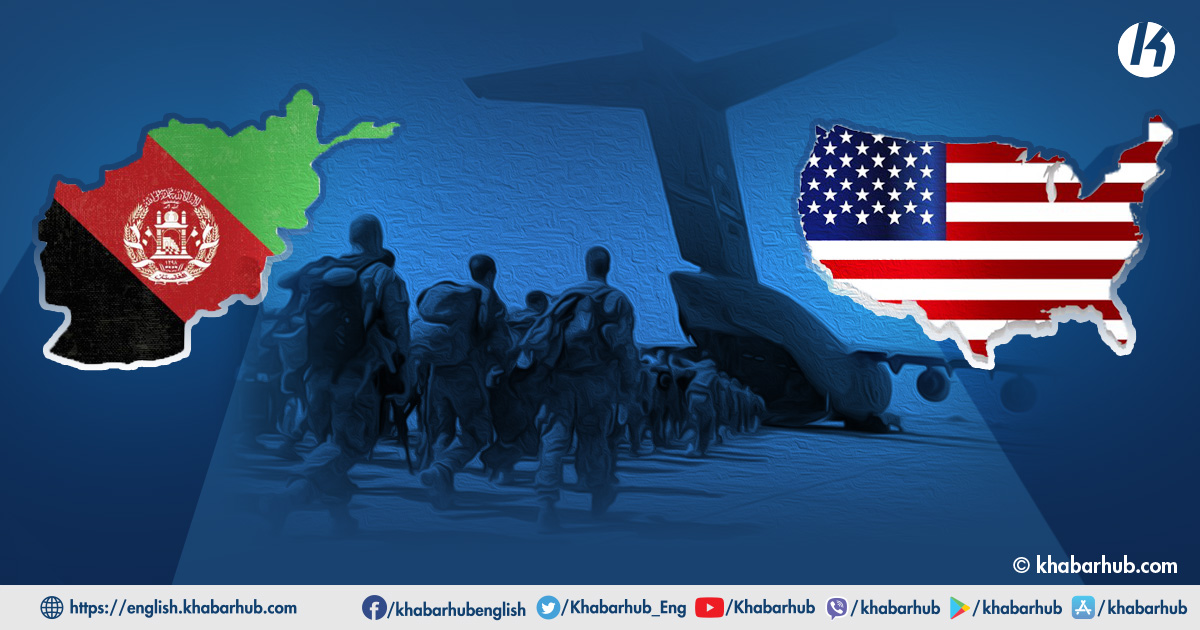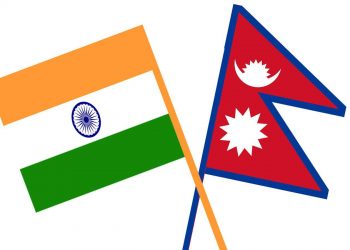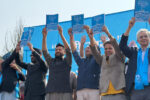KATHMANDU: After a nearly two-decade-long military presence in Afghanistan, the US troops in the war-torn South Asian country have begun packing their gears.
They will leave the country by September 2021 bringing its longest war to an end, however, leaving an uncertain future for this fragile democratic country.
U.S. President Joe Biden has slightly changed the Donald Trump administration’s deadline of 1 May to a symbolic 11 September timeline to complete the withdrawal of U.S. troops.
The two-decade-long war in Afghanistan started in the wake of the September 11, 2001, terrorist attacks.
Debates, skepticism & analyses surrounding the serious consequences of U.S. troop’s withdrawal have been rife as a majority of the Americans against the idea of endless war in Afghanistan. However, the U.S. policy establishment itself is not quite optimistic about the aftermath of U.S. troops’ withdrawal.
There is no choice for the U.S. political leadership than to decide the end of the longest war which has been handled by four US Presidents – the fourth being Joe Biden, who had earlier said he “would not pass the responsibility to a fifth one”.
The existing very fragile peace process may not bring peace and reconciliation, which is equally important for the region as well. There are various potential risks among the Afghan parties and it is for sure that they cannot solely maintain stability.
Colossal expenditure on the presence of large-scale troops in Afghanistan is not necessary. However, without a proper aftermath strategy can lead to uncertainty in the Afghan future.
However, multidimensional threats are looming in Afghanistan following the withdrawal of the U.S. troops giving a sense of insecurity, as well as psychological, moral, and future hope of many Afghans.
The US troops leaving the country should not give a message to the Afghans that they are fully abandoning their country to boost global and regional adversaries’ leverage.
The future of Afghanistan remains quite uncertain as it is yet to be a self-reliant country. Furthermore, the country has already faced a deep ethnic divide, and is always on the fault line due to its location, ethnocultural nationalism, complex dynamics of various interest groups, religious extremism, and deep political polarization.
All these suggest that anticipated volatility or the looming of a brutal civil war or Iraq-like situation cannot be ruled out.
The U.S. took to military intervention against militant Taliban rule in the wake of the Sept. 11 terrorist attacks which has fundamentally changed the Afghan system.
Americans succeeded in transforming the country from an uncivilized brutal militant-based Taliban rule to a democratic and constitutional system.
The U.S. & western allies’ support not only helped in ushering tremendous progress in political, social, judicial, development, health, life expectancy, literacy rate, access to services, education but also helped in thriving private sectors, civil society, media, urban centers to a growing economy.
According to the U.S. Congress research brief on March 25, 2021, the U.S. has invested (development & security aid) more than $143 billion in Afghanistan since 2001.
During the 20 years of American intervention, Afghanistan has taken advantage of all fronts. The country witnessed a constitutional order, governing system, democratic rule, protecting of women rights, ethnic and religious minorities, and a governing framework to build several systems to govern the country.
Defense Department figure shows the 2,442 U.S. troops have been killed, 20,666 wounded since the 2001 intervention. Similarly, 1,144 NATO coalition personnel have been killed in the Afghan war.
Costs of War project has estimated $2.26 trillion has been spent by the U.S. in Afghanistan. Project data suggested 66,000 to 69,000 Afghan security personal have been killed and 47,245 civilians have died.
There is no clear data of private security contractors. It depends on how the U.S. and its Western allies give attention to Afghanistan and its grants and funding, which will remain vital for economic activities in the country.
The U.S. withdrawal could embolden the Taliban militants who are fighting across the country and they might again have an upper hand on the battlefield. Therefore, uncertainty and pessimistic situation loom large, which could even collapse the Afghan government.
It has already been assumed that the country could face a devastating blow in its political, bureaucratic, and security system as well as its decisive impact on country security.
It is also not clear how the U.S. can protect its two-decades-long continued efforts and outcomes to save the system in a war-devastated country. The U.S. financial support will remain vital to the country’s security, and its survival both economically and politically.
The U.S. has not only focused on counter-terrorism operations in Afghanistan but has also engaged in the development and system-building efforts.
However frequent attacks, deep-rooted corruption, geographical complexities, identity-based complex politics could not take a complete shape of American development ambitions.
The current situation in Afghanistan doesn’t show any signs of optimism about the Afghan government’s ability to maintain stability.
The existing very fragile peace process may not bring peace and reconciliation, which is equally important for the region as well. There are various potential risks among the Afghan parties and it is for sure that they cannot solely maintain stability.
Pakistani security and intelligence establishment have remained active to back the Taliban. The larger Taliban umbrella is yet to be separated from al-Qaeda.
Moreover, the Taliban has not changed its extremist ideologies, aim, goals and motive. There can be a worst-case scenario following the complete withdrawal of U.S. troops from Afghanistan.
The U.S. withdrawal could embolden the Taliban militants who are fighting across the country and they might again have an upper hand on the battlefield. Therefore, uncertainty and pessimistic situation loom large, which could even collapse the Afghan government.
American troops withdrawal is certainly a condition-based withdrawal that is based on the February 2020 U.S.-Taliban agreement with a counterterrorism assurance by the Taliban.
U.S. diplomatic efforts have forced the Taliban more committed towards various U.S. concerns including preventing other terrorist groups, control recruiting, training, or fundraising activities from its control areas, not attacking U.S. & international forces, U.S. officials, etc.
But if we track the past Taliban records, they have neither fulfilled their previous commitments nor they are expected to do so in the future.
The Taliban must honor its commitment even if they are in a winning position or have an upper hand and not remain as a covert backer of the Pakistani military establishment.
The U.S. had planned to leave the country by 2014. However, withdrawal scenarios had changed following the collapse of the Iraqi state. The sudden crumble of Iraqi security forces changed the American timeline in Afghanistan.
Islamabad’s self-interest could destabilize the efforts of political settlement in Afghanistan. Pakistan is not only capable to encourage the Taliban for a power-sharing deal but can also direct them for peace and stability. Pakistan does not do so.
The U.S. withdrew its troops from Iraq in December 2011. However, local political parties had failed to bring political stability and reconciliation.
Sectarian tensions, deep political rivalry, widespread corruption have led the Iraqi state into turmoil and the weak security forces failed to control the ground.
The Islamic State captured major Iraqi cities in June 2014 by stunningly spreading its network and influence to various countries including Afghanistan. We, therefore, cannot rule out the Iraq-style collapse of the Afghan security force or similar kind of political rivalry in Afghanistan.
Pakistani security and intelligence establishment have remained active to back the Taliban. The larger Taliban umbrella is yet to be separated from al-Qaeda.
The Taliban has still nexus with other terrorist groups and criminal networks, drug cartels, and the protection of al-Qaeda leadership and networks.
Pakistan’s role or identification in the peace and stabilization process is vital to lasting peace in Afghanistan. Islamabad’s role in a post-withdrawal Afghanistan does not seem good for Americans. Pakistan continues the empowerment of its proxies and Iran has also been playing its destabilizing role in Afghanistan.
Pakistani control/support proxy’s militant groups or actors could target Indian and American interests in Afghanistan or elsewhere, which would certainly prompt response and that would be the source of regional instability.
Pakistan has not upheld its promises since 2001– it has played a double game and continues backing the Taliban to destabilize Afghanistan.
The U.S. & allies should continue to revitalize its efforts in Afghanistan to maintain the credibility of global leadership and prevent further deterioration of the situation and the outcome of the two-decades-long US presence.
Pakistan can make peace and reconciliation in Afghanistan. However, it is backing the Taliban and protecting its senior leaders suggesting a post-Soviet-style military maneuvering opportunity to the Taliban.
Without continued ramp-up pressure on Pakistan and the Taliban, Afghanistan’s political future is fragile.
Islamabad’s self-interest could destabilize the efforts of political settlement in Afghanistan. Pakistan is not only capable to encourage the Taliban for a power-sharing deal but can also direct them for peace and stability. Pakistan does not do so.
Meanwhile, China, which has maintained a strong relationship with both Pakistan and Iran, will certainly expand its footstep in the geo-strategically important location of Afghanistan to expand its presence in the energy-rich wider Middle East.
The most pessimistic perception is extremely dangerous for security and political failure. It can protect collective foreign aid, security assistance, social, and economic progress should have avoided the political vacuum or anarchism.
The U.S. should be prepared to counter-terrorism efforts or targeted dangerous jihadist leaders from Afghanistan and Pakistan also.
Taliban military gains will boost the morale of militants but Afghan forces need to more relentless to overthrow militants without a political settlement.
The political settlement of the Afghan conflict through intra-Afghan dialogue is a must but it looks very rare in a much-complicated landscape.
Taliban will try to take sole advantage after the withdrawal of the US and allies’ troops from Afghanistan. The U.S. mode of future engagement, interests, scale, and scope is vital for Afghan’s political future. Another escalating civil war in Afghanistan will jeopardize the region.
The current status quo of Afghanistan is uncertain due to the poor motivation of security forces. If the U.S. will not be able to prevent the power vacuum, it will make future adversaries, regional instability, and will also change the internal power dynamics.
The sustainability of the U.S. gains is elusive. Afghanistan has not military solution but it cannot be achieved without a strong military response.
Only a diplomatic approach cannot sustain the gain in Afghanistan. Afghan system cannot be protected without external support and aid. However, very few realistic propositions can address the challenges.
The U.S. needs to assure the Kabul civilian and security leadership to boost their morale to continue to maintain stability and border security of Afghanistan’s neighbors particularly — Pakistan and Iran.
The U.S. & allies should continue to revitalize its efforts in Afghanistan to maintain the credibility of global leadership and prevent further deterioration of the situation and the outcome of the two-decades-long US presence.
The U.S. efforts are also equally vital to maintain the status quo in the nation.
Taliban will try to take sole advantage after the withdrawal of the US and allies’ troops from Afghanistan. The U.S. mode of future engagement, interests, scale, and scope is vital for Afghan’s political future. Another escalating civil war in Afghanistan will jeopardize the region.








Comment